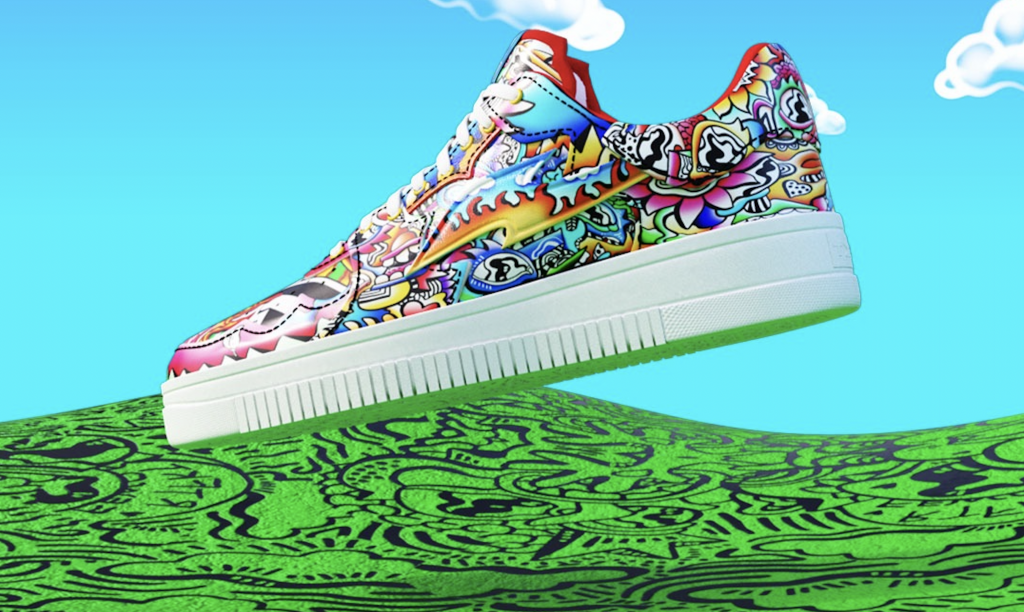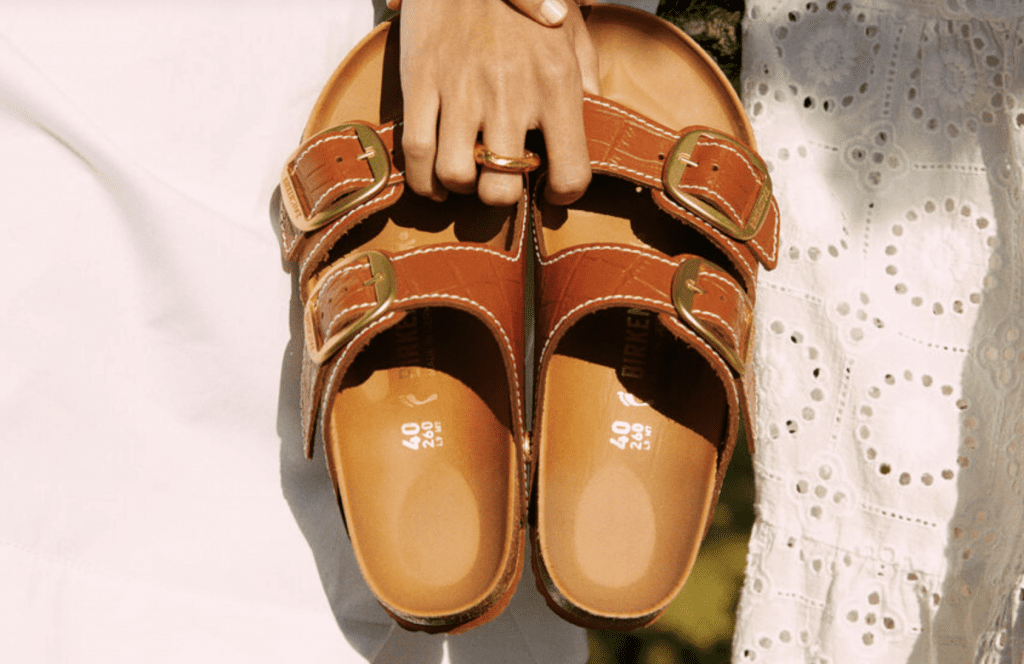RTFKT may be the next big name in fashion. However, unlike most of the current players that dominate the industry, i.e., those that generate revenue by offering up physical goods in their brick-and-mortar stores and via their rapidly growing e-commerce endeavors, you cannot buy London-based RTFKT’s offerings in any traditional sense. That is because very few of their products are tangible offerings, and the majority of its goods – more than 90 percent of them – come in the form of non-fungible tokens (“NFTs”), whether that be virtual sneakers, such as the 621 pairs it created alongside artist Fewocious, and subsequently netted $3.1 million in sales in a matter of minutes for in March, or the digital-only jeans it collaborated with Murder Bravado to make.
An NFT enthusiast on social media recently asserted that RTFKT – pronounced “artifact” – is going to be “bigger than Supreme,” and it turns out, while the company’s co-founder Benoît Pagotto freely admits that there is an NFT boom currently underway and prices for such digital assets “will go lower at some point,” that commenter may be on to something when it comes to the future of RTFKT. The company, which is not yet even a year-and-a-half old, revealed this week that it raised $8 million in a round led by venture capital firm Andreessen Horowitz, and that includes Riot Games co-founder Marc Merrill, Behance co-founder Scott Belsky, artist Fewocious, and former LVMH Chief Digital Officer Ian Rogers, among others, in furtherance of its quest to “empower the future of fashion.” The round values the company at $33.3 million.
Mr. Pagotto – who worked as a brand and marketing strategist before launching RTFKT alongside Chris Le and Steven Vasilev in January 2020 – says that he anticipates that “it will take some people a bit of time” to fully grasp the enthusiasm around crypto collectibles, including garments and accessories. There is, nonetheless, an entire pool of customers are willing and eager to buy NFTs because, as GQ’s Cam Wolf put it, “their digital personas are just as important as their physical ones,” and these consumers are buying up NFTs “not just to play video games, but to clothe their digital selves.” Laurent Ohana, a senior advisor at Ohana & Co., which co-invested in the RTFKT round with C Ventures, echoed this notion on Tuesday, stating that “non-gamers are willing to buy digital assets,” whether they be “crypto speculators, who see a wave of interest and want to buy low and sell high,” or “crypto-rich” individuals (or groups of individuals) who “have an affinity for esoteric digital assets that they feel will appreciate in value and become more easily tradable over time. ” Still yet, there are others, who he says are “art connoisseurs who believe there is a new art form emerging that happens to be digital and NFT-paired.”
Piggybacking on the established – and growing – appeal and large-scale embrace of gaming, which has seen brands like Louis Vuitton and Gucci partner with properties like League of Legends and Tennis Clash to offer up digital versions of their wares in an attempt to reach some of the 2.5 billion people across the globe that play digitally-hosted games, this seemingly creates an entirely new opportunity for companies and brands to meet consumers where they currently are (or are going to go). In that vein, it is also a chance for them to generate sizable sums of revenue in the process – both in an initial sale capacity (consumers spend an estimated $100 billion on virtual goods each year, per Fast Co.), and in connection with the resale of such digital assets since, as a 2019 NFT-centric patent issued to Nike revealed, resale royalty terms can be included in the smart contract that underlies an individual NFT to ensure that the original company (or individual) behind the NFT continues to share in any revenues generated as a result of subsequent sales.
And there is, in fact, value to be had in a secondary market capacity for virtual goods, just as there is for tangible goods in the $25 billion-plus luxury resale market. “The virtual world is creating its own economy,” Gucci’s EVP of brand and customer engagement Robert Triefus, told Fast Co. “Virtual items have value because of their own scarcity, and because they can be sold and shared.”
As for how RTFKT plans to use its newly-raised cash, the company revealed in a statement on Tuesday that “through unique partnerships and projects, we can push the NFT ecosystem forward and help shape the future of fashion and commerce in the metaverse.” Beyond that, the company states that it is planning to “incubate” new projects, host drops, and curate digital exhibitions, among other things. At the same time, RTFKT’s founders revealed that the company was “born on the blockchain to ensure authenticity, ownership and grant access to new experiences,” noting that they believe that “blockchain technology has the potential to empower creators to lead, collaborate and create with no limits,” all while NFTs act as “a transformative medium that is going to develop a new paradigm between creativity and commerce.”











